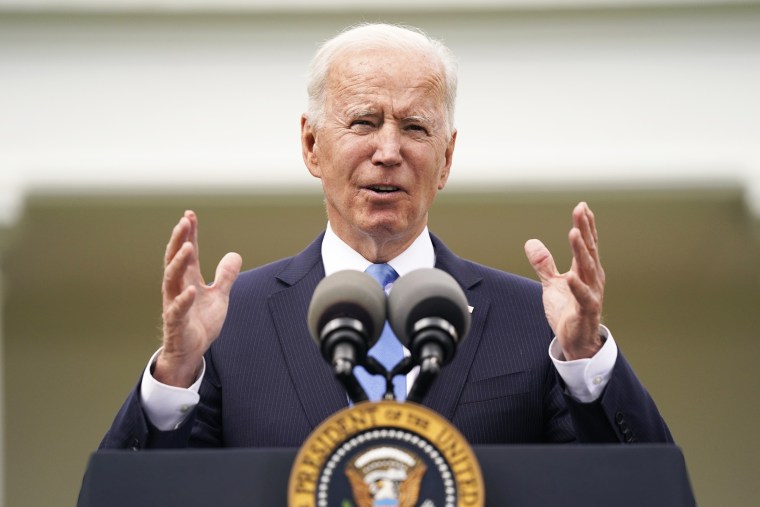When President Joe Biden originally unveiled his ambitious infrastructure package, called the American Jobs Plan, it came with a hefty price tag: roughly $2.25 trillion. Polls showed fairly broad public support for the proposal, but Republicans nevertheless rejected it out of hand.
And so, the president, eager to reach some kind of bipartisan compromise, slashed the topline of his investment goals, offering a $1.7 trillion proposal. Republicans not only balked at the scope of the investments, GOP lawmakers also said they would not consider any proposal that rolled back any element of the party's Trump-era tax package -- which, incidentally, failed at each of its stated goals.
All of which led to yesterday, when Biden presented yet another offer, once again trying to make Republicans happy.
President Joe Biden offered Senate Republicans an alternative to the tax hikes he initially proposed to pay for a sweeping infrastructure plan, part of his attempt find a bipartisan agreement, according to two sources briefed on the proposal. In a meeting Wednesday with Sen. Shelley Moore Capito, the lead Republican negotiator, Biden insisted that tax increases pay for most of the plan but signaled he was willing to back a smaller increase than he had initially requested.
Let no one say the White House lacks creativity. By all accounts, at the heart of the president's new pitch is a 15% minimum corporate tax and tougher enforcement on the highest earners. The appeal of such a minimum should be obvious: Many corporate giants are currently paying nothing in federal income tax rates, and creating a new floor would generate revenue that could finance key domestic priorities.
For Republicans, this is a practical and convenient solution. So, problem solved? Of course not. The New York Times reports that GOP leaders on Capitol Hill -- the ones in the minority because their party lost in the most recent election cycle -- still aren't satisfied.
...Republicans said on Thursday that Mr. Biden was seeking more spending than they were likely to support. They privately panned his continued attempt to fund the bill with increased tax revenue from corporations and high earners even if those plans do not cross the Republicans' red line of reversing parts of President Donald J. Trump's signature tax cuts in 2017.
Broadly speaking, there are a couple of questions in need of answers.
The first is why Republicans keep rejecting overly generous White House offers. The answer, I suspect, is that GOP officials simply aren't serious about reaching a compromise with Democrats on an infrastructure package. Their paltry games with woeful counteroffers bolsters the idea that Republicans simply don't want a deal.
The second question, however, is why in the world Biden keeps making these concessions and offers, despite the apparent fact that 10 GOP senators will never come around.
Maybe the president is still desperate to prove his bipartisan commitments. Perhaps he genuinely believes Senate Republicans will eventually negotiate in good faith.
Or maybe Biden doesn't want to pull the plug on faltering infrastructure talks because centrist Democrats like West Virginia's Joe Manchin has told the White House the president doesn't have the votes to pass an ambitious jobs plan through the budget reconciliation process.
Watch this space.

